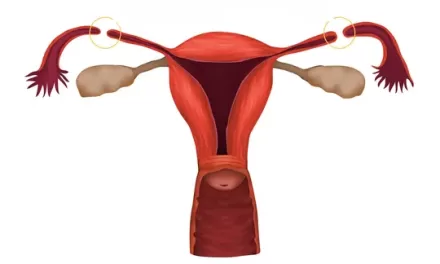As the new year approaches, millions are preparing to adopt healthier eating habits, making resolutions to eat “clean” and boost their well-being. However, experts are raising alarm bells about the growing obsession with clean eating, warning that it can spiral into a dangerous fixation known as orthorexia nervosa, an eating disorder that prioritizes the purity of food over its nutritional value.
The Allure of Clean Eating
In recent years, clean eating has become synonymous with health, discipline, and vitality. Advocates of the lifestyle tout its potential for enhanced physical vitality, improved mental clarity, and a sense of overall well-being. However, as clean eating becomes more ingrained in popular culture, the trend is also contributing to an alarming rise in cases of orthorexia nervosa—a condition that manifests when individuals become so obsessed with the quality of their food that it disrupts their lives.
A study by researchers at Semmelweis University in Hungary surveyed 179 female fashion models and found that more than one-third displayed symptoms of orthorexia. Surprisingly, nearly 20% of the control group, made up of students, exhibited similar behaviors, highlighting that the condition is not limited to high-profile individuals.
The Dangers of Restrictive Diets
Orthorexia nervosa involves an unhealthy obsession with eating “pure” foods to the exclusion of all others. Dr. Nikolett Bogar, one of the leading researchers on the topic, warns that overly restrictive diets—such as consuming only raw foods, eliminating entire food groups, or avoiding processed items—can lead to severe malnutrition. The body may be deprived of essential vitamins, minerals, protein, and carbohydrates, which can result in long-term health problems.
The condition is not just a physical threat but a mental one as well. Individuals with orthorexia may experience anxiety or distress when their food routines are disrupted. Social situations, such as family meals or holiday gatherings, can become sources of stress, as people with this disorder often refuse to participate if the food doesn’t meet their strict standards.
The Growing Clean Eating Trend
Research shows that the obsession with clean eating is becoming more prevalent, especially as the new year begins. A staggering 90% of participants in one study indicated that they aspired to follow a healthy and clean diet, reflecting the broader cultural shift towards prioritizing health and wellness. In January, around 35% of people adopt new dietary goals, typically after indulging over the holidays.
However, Dr. Bogar emphasizes the importance of not viewing foods as simply “good” or “bad.” Rather than focusing on purity, she suggests embracing a balanced, long-term dietary approach that includes occasional indulgences. “Eating should not just be about nutrients; it should also be a social and cultural experience,” she says, encouraging individuals to find joy in food without guilt.
What Is Orthorexia Nervosa?
Orthorexia nervosa, a term coined by Dr. Steven Bratman in 1997, refers to an unhealthy obsession with consuming only “pure” or “clean” foods. Unlike other eating disorders such as anorexia or bulimia, orthorexia is defined by the quality, not the quantity, of food consumed. While not officially recognized in diagnostic manuals, the condition is gaining awareness among medical professionals, who note that extreme clean eating can lead to social isolation, anxiety, and severe nutritional deficiencies.
Dr. Bratman has observed that individuals with orthorexia often withdraw from social gatherings where their specific dietary preferences cannot be met. This isolation, paired with the anxiety over maintaining a rigid food regimen, can worsen the mental and physical toll on the individual. Over time, this unhealthy fixation can lead to malnutrition, and in extreme cases, it may even be life-threatening.
Interestingly, orthorexia can affect both men and women equally. It is often associated with traits such as perfectionism and narcissism. For many individuals, the drive to eat “pure” foods is not rooted in low self-esteem but rather in the desire to feel morally superior to others, using their strict dietary discipline as a way to distinguish themselves.
The Road to Healthier Habits
For those making new year’s resolutions to eat healthier, experts advise a balanced approach. Dr. Bogar suggests that individuals focus on moderation rather than perfection. “Indulging in holiday treats occasionally should be a part of your diet without guilt,” she says. The key is to aim for a long-term, balanced approach that promotes both physical and mental health, avoiding the pitfalls of restrictive eating habits.
In conclusion, the clean eating trend has become a powerful cultural force, but it’s essential to approach it with caution. Focusing too much on the purity of food can lead to both physical and psychological harm. By embracing a more flexible and balanced diet, individuals can safeguard their health and enjoy food as both nourishment and a source of connection in their social and cultural lives.
This study, published in Eating and Weight Disorders, serves as a timely reminder to approach new year’s resolutions with compassion, balance, and moderation.












